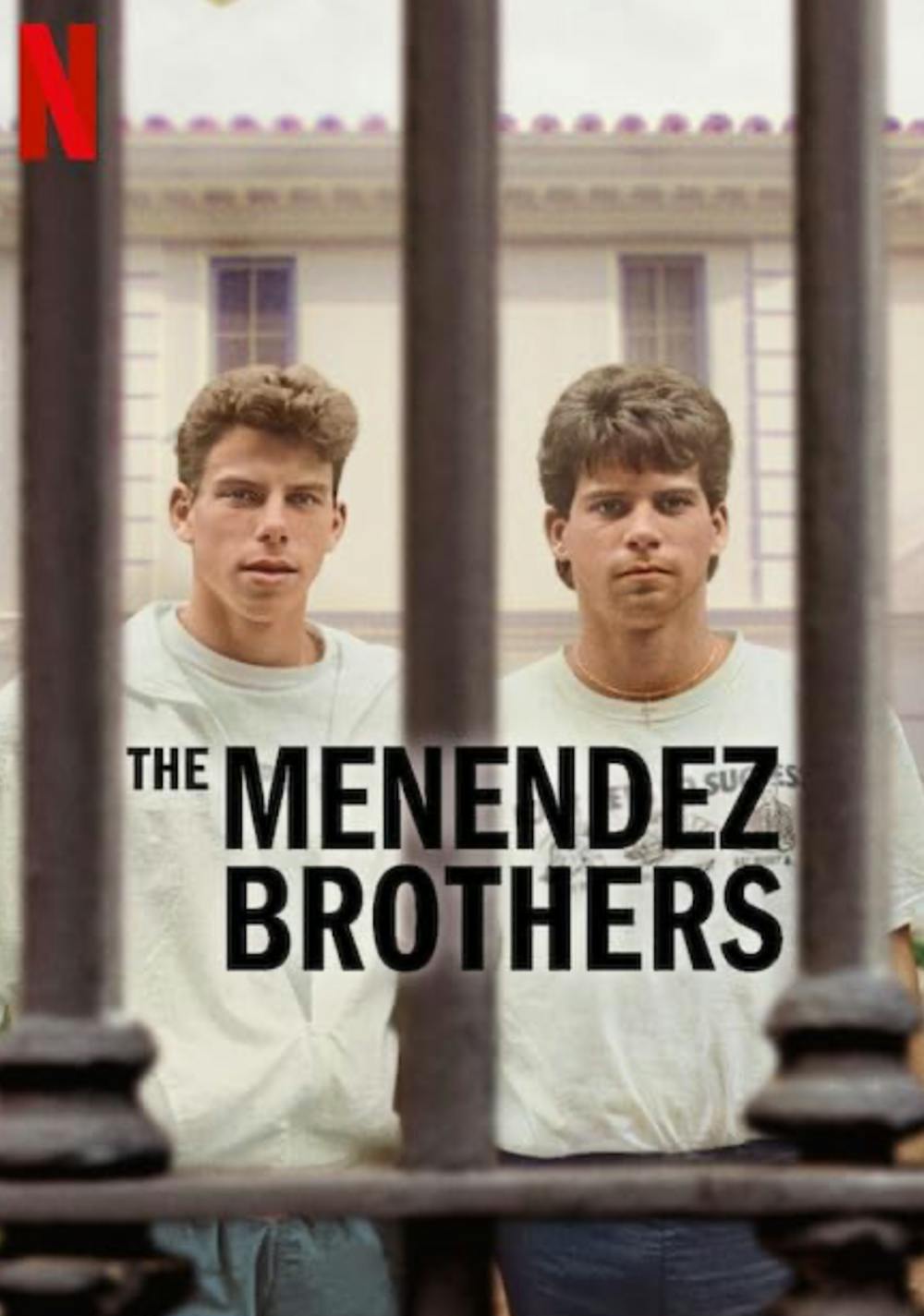By Ashley Ragone
Staff Writer
Two brothers, Lyle and Erik Menendez, were convicted for the murders of their parents in 1996. After two trials, they were found guilty and sentenced to life in prison without the possibility of parole. Now, after 34 years of incarceration, the new Netflix documentary “The Menendez Brothers” tells their side.
At the time of the murders, Erik and Lyle were 18 and 21, respectively, living in affluent Beverly Hills, California. Their family appeared to embody the quintessential American dream, their father Jose a successful businessman and mother Kitty a devoted homemaker. However, testimonies and personal anecdotes during the trials revealed a far more tumultuous and dysfunctional home life.
On the evening of Aug. 21, 1989, the brothers shot their parents in their home, and despite initially presenting as grieving sons blaming the mafia for the heinous crime, their questionable actions led to further investigation.
Their $700,000 shopping spree after acquiring their parents’ inheritance raised eyebrows, and after suspicion of their financial motive, they were arrested after Erik’s therapist’s ex-girlfriend informed the police of the brothers’ involvement.
Released to further cover the situation after the previous “Monsters” documentary from last month, this documentary contextualizes the trial within the landscape of the late 80s and early 90s. It highlights the influence of the growing media presence, particularly the new television station “Court TV,” which transformed the real-life crime into a public spectacle. This heightened visibility was also combined with broad distrust in the judicial system, especially in the wake of the 1992 Los Angeles Riots and beating of Rodney King.
The defense’s primary argument for the Menendez brothers centered around the claim that they acted out of fear, having suffered from years of abuse and violence at the hands of their parents. This revelation added complexity to the case, challenging their portrayal as “dumb, jock killers” by head prosecutor Pamela Bozanich.
In interviews with the jurors, however, this defense was not entirely effective; the first trial resulted in a hung jury, with female jurors sympathetic to their story, while male jurors struggled to accept the idea of male victimhood.
This narrative is all too familiar. According to the CDC, almost one in four men in the United States have experienced a form of sexual violence. Northlake Behavioral Health studies how male victims “often face significant barriers to disclosing their experiences due to shame, fear of disbelief, and societal taboos surrounding male victimization.”
Within the last few years, the media has had a reignited interest in the Menendez case. The social media platform TikTok has assisted in this resurgence, as thousands of accounts and videos aim to spread information about their case and share potential new evidence that could corroborate their stories. Within the documentary, Erik expressed his appreciation for this awareness, emphasizing the importance of dismantling what he describes as a “culture of silence” surrounding male victimization.
In May of 2023, flanked by online supporters, the brothers filed a habeas petition to vacate their murder convictions, seeking re-examination of new evidence in their case. This includes the affidavit of Roy Rossello of boyband Menudo, where he alleges he was assaulted by Jose. They are still waiting for a decision from the district attorney, while their case continues to spark discussions about the complexities of trauma in the justice system.
This documentary reflects on the intricacies of the justice system as it comes into contact with trauma and growing media. The brothers now reside in the same cell block in Donovan Correctional Facility, and encourage the sharing of their story. The documentary does a great job of giving the brothers the space to share their thoughts on how their case played out, and uses a fresh perspective on what experiences could have factored into their decision to kill their parents. I think the case is truly fascinating, and a great watch for any true crime fan.







